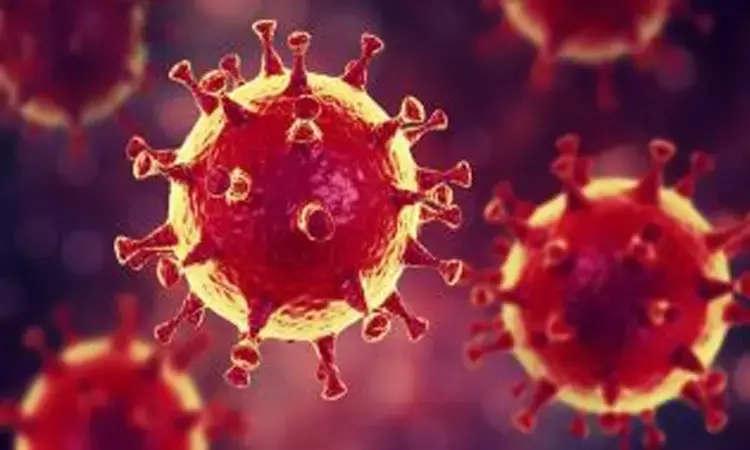- Home
- Medical news & Guidelines
- Anesthesiology
- Cardiology and CTVS
- Critical Care
- Dentistry
- Dermatology
- Diabetes and Endocrinology
- ENT
- Gastroenterology
- Medicine
- Nephrology
- Neurology
- Obstretics-Gynaecology
- Oncology
- Ophthalmology
- Orthopaedics
- Pediatrics-Neonatology
- Psychiatry
- Pulmonology
- Radiology
- Surgery
- Urology
- Laboratory Medicine
- Diet
- Nursing
- Paramedical
- Physiotherapy
- Health news
- Fact Check
- Bone Health Fact Check
- Brain Health Fact Check
- Cancer Related Fact Check
- Child Care Fact Check
- Dental and oral health fact check
- Diabetes and metabolic health fact check
- Diet and Nutrition Fact Check
- Eye and ENT Care Fact Check
- Fitness fact check
- Gut health fact check
- Heart health fact check
- Kidney health fact check
- Medical education fact check
- Men's health fact check
- Respiratory fact check
- Skin and hair care fact check
- Vaccine and Immunization fact check
- Women's health fact check
- AYUSH
- State News
- Andaman and Nicobar Islands
- Andhra Pradesh
- Arunachal Pradesh
- Assam
- Bihar
- Chandigarh
- Chattisgarh
- Dadra and Nagar Haveli
- Daman and Diu
- Delhi
- Goa
- Gujarat
- Haryana
- Himachal Pradesh
- Jammu & Kashmir
- Jharkhand
- Karnataka
- Kerala
- Ladakh
- Lakshadweep
- Madhya Pradesh
- Maharashtra
- Manipur
- Meghalaya
- Mizoram
- Nagaland
- Odisha
- Puducherry
- Punjab
- Rajasthan
- Sikkim
- Tamil Nadu
- Telangana
- Tripura
- Uttar Pradesh
- Uttrakhand
- West Bengal
- Medical Education
- Industry
CKD patients more vulnerable to COVID-19 infections, finds study

. A study of 59 patients with COVID-19 found that about two-thirds of patients developed a massive leak of protein in urine during their stay in hospital.
The COVID-19 pandemic is throwing up unique challenges for health systems. It presents particular challenges for patients who have chronic kidney disease and receive regular haemodialysis.
These patients with chronic kidney disease are particularly vulnerable to Covid 19 infection.In addition to this, they may exhibit greater variations in clinical symptoms and infectivity.The results of the study have been published in the Journal of Kidney International.
"Unlike other at-risk individuals, these patients do not have the ability to stay at home and not interact with others. Despite the high risk they face, they must travel to dialysis centers 2–3 times every week. This significantly increases the risk of transmission of infection to patients themselves, family members, medical staff and facility workers, and all others," says Prof. Vivekanand Jha, Executive Director, George Institute for Global Health India and President of the International Society of Nephrology. The involvement of kidney in COVID-19 infection seems to be frequent. When the infection is severe, it becomes an independent predictor of mortality.
In a paper entitled "The Novel Coronavirus 2019 epidemic and the Kidneys", written by an expert group of nephrologists from around the world including China, it has been pointed out that all family members living with dialysis patients must follow the precautions and regulations given to patients to prevent person-to-person transmission of COVID-19 within the family. The precautions include body temperature measurement, good personal hygiene, handwashing, and prompt reporting of potentially sick people.
The management of patients on dialysis who have been suspected to have been in contact with COVID-19 should be carried out according to strict protocols to minimize risk to other patients and healthcare personnel taking care of these patients," said Prof. Jha. These guidelines have been made available on the International Society of Nephrology website.
As per earlier reports of SARS and MERS-CoV infections, acute kidney injury (AKI) had developed in 5 to15 percent cases and about 60 to 90 percent of those cases reported mortality. In the case of patients with COVID-19 infection, preliminary reports suggested a lower incidence (3 to 9 percent) of AKI; but later reports indicate a higher frequency of kidney abnormalities. A study of 59 patients with COVID-19 found that about two-thirds of patients developed a massive leak of protein in urine during their stay in hospital.
It is recommended that persons with potential COVID-19 risk must be given the same supportive care as given to critically ill patients. Supportive care includes bed rest, nutritional and fluid support, maintenance of blood pressure and oxygenation, prevention and treatment of complications by providing organ support, maintaining hemodynamic stability, and preventing secondary infection.
Following are the major recommendations: https://doi.org/10.1016/j.kint.2020.03.001
Hina Zahid Joined Medical Dialogue in 2017 with a passion to work as a Reporter. She coordinates with various national and international journals and association and covers all the stories related to Medical guidelines, Medical Journals, rare medical surgeries as well as all the updates in the medical field. Email: editorial@medicaldialogues.in. Contact no. 011-43720751
Dr Kamal Kant Kohli-MBBS, DTCD- a chest specialist with more than 30 years of practice and a flair for writing clinical articles, Dr Kamal Kant Kohli joined Medical Dialogues as a Chief Editor of Medical News. Besides writing articles, as an editor, he proofreads and verifies all the medical content published on Medical Dialogues including those coming from journals, studies,medical conferences,guidelines etc. Email: drkohli@medicaldialogues.in. Contact no. 011-43720751


